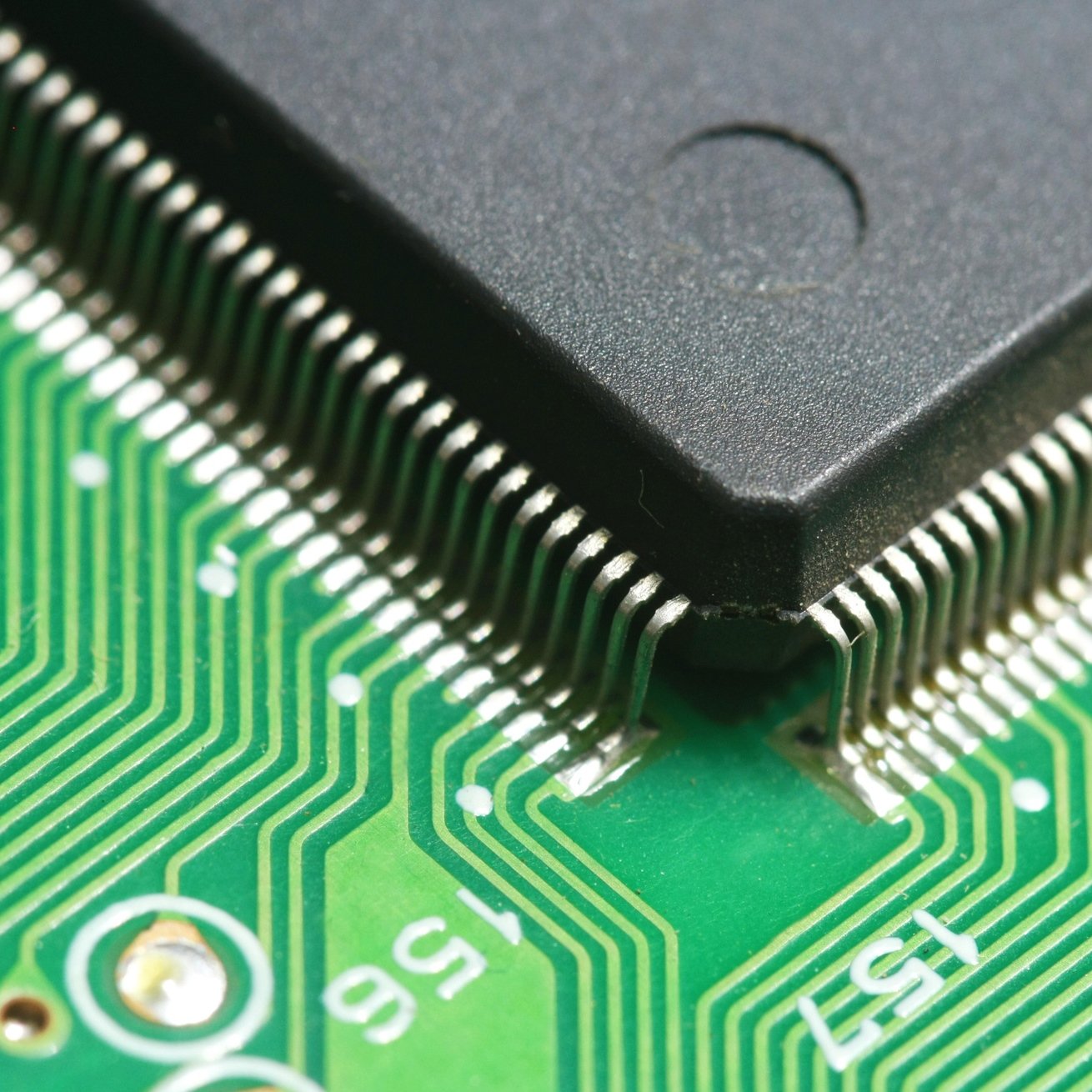Technology
4 Stocks to Buy as Huge Margins Drive Semiconductor Earnings Higher

Published:
Last Updated:

As we have noted many times, in a huge bull market run, when a sector gets hot there is only one thing that can push shares that are already extended even higher. And that is earnings growth. In a remarkable continued run for the semiconductor segment, the analog chips have been along for the ride as well. Add some huge consolidation within the group, and there remains a good chance that shares can be pushed even higher.
In a new Jefferies research report from, the firm’s outstanding semiconductor analyst Mark Lipacis notes that the continued demand from Internet of Things devices is huge for the analog chip companies. The data those devices generate gets processed with new artificial intelligence technology, which is leading to both higher quality and more demand for those devices. The perfect storm for leading stocks. The report noted this:
Earnings forecasts for analog companies over the next 12 months are at all-time-highs (18% above previous peak forecasts), gross and operating margins are also at all-time-highs and while tight capacity and stretching lead times have led to better pricing, many investors are becoming more concerned that inventories are building in the supply chain and we’re at the peak of the cycle. Mark disagrees, believing that consolidation is the real culprit which could actually drive profitability higher.
The Jefferies team is very bullish on four top stocks, and all are rated Buy.
This stock spiked recently and has come back into a good buy range. Analog Devices Inc. (NASDAQ: ADI) is a leader in the design, manufacture and marketing of analog, mixed-signal and digital signal processing integrated circuits for use in industrial, automotive, consumer and communication markets worldwide. It offers signal processing products that convert, condition and process real-world phenomena, such as temperature, pressure, sound, light, speed and motion, into electrical signals.
Earlier this year the company introduced a highly integrated polyphase analog front end with power quality analysis designed to help extend the health and life of industrial equipment while saving developers significant time and cost over custom solutions. Achieving extremely accurate, high-performance power quality monitoring typically requires customized development, which can be expensive and time-consuming.
The analysts believe that the Linear Technology acquisition is a big positive. In addition, many on Wall Street expect that corporate management ultimately will exceed its $150 million of targeted synergies. Toss in a very positive recent analysts day, and the signals look strong.
Analog Devices investors receive a 2.03% dividend. The Jefferies price target for the stock is $105. The Wall Street consensus target is $95.75, and shares traded early Tuesday at $89.15.
This company supplies some chips to Samsung for the red-hot Galaxy line. Maxim Integrated Products Inc. (NASDAQ: MXIM) designs, develops, manufactures and markets various linear and mixed-signal integrated circuits worldwide. The company also provides a range of high-frequency process technologies and capabilities for use in custom designs. It primarily serves automotive, communications and data center, computing, consumer and industrial markets.
Regardless of which processor wins supremacy in automotive segment over the next couple of years, Maxim stands poised to benefit with its Power Management and SERDES content as autonomous cars require leading power efficiency and data distribution. Moreover, the company should see a linear benefit with additional content needed for greater levels of autonomous-driving features in future generations of automobiles.
Jefferies has a $58 price objective, and the consensus target price is $48.83. The shares were last seen trading at $52.25.
Microchip Technology Inc. (NASDAQ: MCHP) not only is a huge Internet of Things benefactor, but a leading provider of microcontroller, mixed-signal, analog and flash-IP solutions, providing low-risk product development, lower total system cost and faster time to market for thousands of diverse customer applications worldwide.
The company offers microcontrollers, such as 8-bit, 16-bit and 32-bit microcontrollers under the PIC brand name and 16-bit dsPIC digital signal controllers, as well as provides microcontrollers for automotive networking, computing, lighting, power supplies, wireless communication and wireless audio applications.
Microchip Technology is only owned by 6% of active managers, which is well below the 2011 peak of 12%.
Investors receive a 1.56% dividend. The Jefferies price target for the stock is $106, and the consensus price objective is lower at $98.67 The stock closed Monday at $92.61.
This old-school chip tech company is a top pick for the fourth quarter at Jefferies. Texas Instruments Inc. (NASDAQ: TXN) is a broad-based supplier of semiconductor components, ranging from digital signal processors to high-performance analog components to digital light-processing technology and calculators. Some 65% of Texas Instruments sales are exposed to the well-diversified, business-to-business industrial, automotive, communications infrastructure and enterprise markets.
The company increased its quarterly dividend earlier this year by 32% to 50 cents per share, or $2.00 annualized. The increase reflects the company’s continued strength in free cash flow generation and its commitment to return excess cash to shareholders.
Shareholders are paid a 2.65% dividend. The Jefferies price objective is $100, while the consensus price target for the shares is set at $88.66. The stock was trading at $96.00.
Once again, the major key for continued share price gains is earnings growth and guidance. Due to the lofty heights these companies trade at, it’s important to remember that an earnings miss, poor forward guidance or a combination of both could send the shares into a downward spiral. So proceed with caution.
Are you ready for retirement? Planning for retirement can be overwhelming, that’s why it could be a good idea to speak to a fiduciary financial advisor about your goals today.
Start by taking this retirement quiz right here from SmartAsset that will match you with up to 3 financial advisors that serve your area and beyond in 5 minutes. Smart Asset is now matching over 50,000 people a month.
Click here now to get started.
Thank you for reading! Have some feedback for us?
Contact the 24/7 Wall St. editorial team.